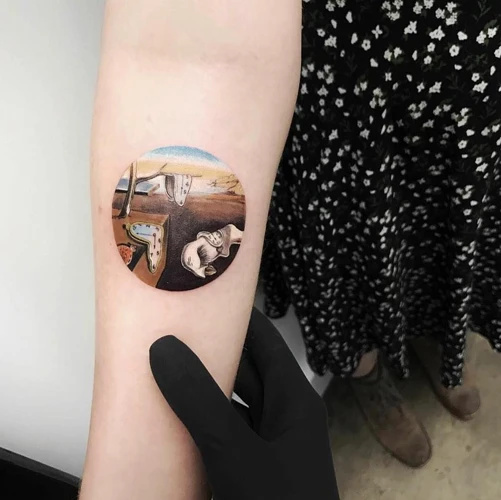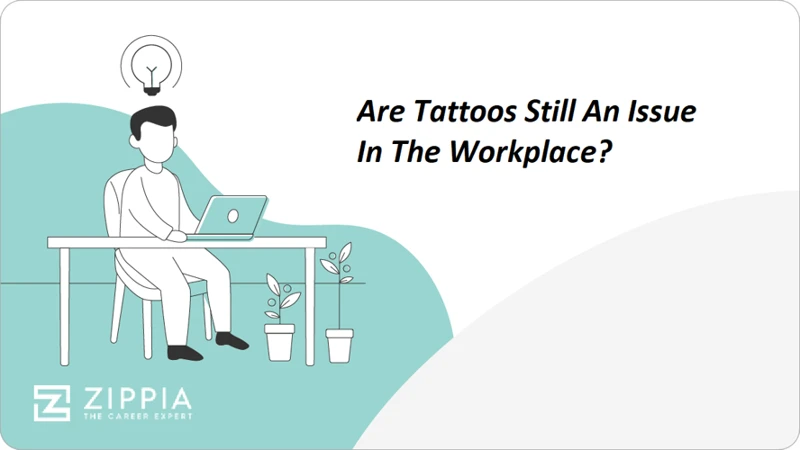Getting a tattoo can be an exciting and creative way to express yourself. However, there are a few things to consider before taking the plunge. Before getting a tattoo, it is important to weigh the pros and cons of the decision. This article will discuss five reasons why you should think twice before getting a tattoo, and what the cons of getting a tattoo are.
Contents
Advantages and Disadvantages of Tattoos

Advantages
Tattoos offer a unique way to showcase one’s personality and interests. They can also be used to commemorate an important event or milestone in one’s life. Additionally, tattoos can be a form of self-expression, allowing one to display their own individual style.
Disadvantages
However, before getting a tattoo, it is important to consider the potential drawbacks. Tattoos can be expensive and time-consuming to get and remove. Furthermore, there is always the risk of infection and scarring when getting a tattoo. Additionally, tattoos can be difficult to hide, making them inappropriate in certain professional and social settings. Finally, tattoos are a permanent choice and can be difficult to reverse if one decides they no longer want the tattoo.
Overall, it is important to consider what are the advantages and disadvantages of tattoos before getting inked. While tattoos can be a great way to express oneself, they also come with certain risks and drawbacks. Careful consideration is necessary to ensure that the decision to get a tattoo is the right one.
Reasons Why You Should Think Twice Before Getting a Tattoo

Pain
Getting a tattoo involves needles piercing through the skin, resulting in pain and discomfort. While the pain is tolerable for some, it can be quite intense for others.
Cost
Tattoos can be expensive. The cost of a tattoo depends on the size, complexity and location. Tattoos can range from a few hundred dollars to thousands.
Health Risks
Tattoos can have health risks. If the needles and equipment used to create the tattoo are not properly sterilized, it can lead to infections and diseases such as HIV and hepatitis.
Allergies
People with sensitive skin can have allergic reactions to the ink and pigments used in tattoos. These reactions can range from mild skin irritation to more serious reactions such as swelling, burning and scarring.
Regret
Getting a tattoo is a permanent decision that can be difficult to reverse. It is important to consider carefully before getting a tattoo, as it can be difficult to remove and may cause regret or embarrassment in the future.
Cultural Considerations

- Tattooing is a cultural phenomenon – It has been practiced in many cultures since long before the 20th century. Some cultures consider the practice of tattooing to be extremely sacred and meaningful, while others associate it with negative connotations.
- It can be seen as offensive – In some cultures and religions, tattoos are seen as being provocative, offensive and even insulting. For instance, in the Muslim religion, tattoos are prohibited and are seen as a symbol of arrogance and vanity.
- It can be seen as disrespectful – In some cultures, tattoos can be seen as disrespectful to the deceased. For example, in the Chinese culture, tattoos are seen as an insult to the memory of ancestors.
- It can be seen as taboo – In some cultures and religions, tattoos are seen as a taboo. For example, in the Hindu religion, tattoos are seen as a sign of impurity and can be seen as a form of disrespect.
- It can be seen as a sign of rebellion – In some cultures, tattoos are seen as a sign of rebellion and can be seen as a way to challenge authority. For example, in the punk culture, tattoos are seen as a way to express individualism and defiance.
Professional Considerations
Having a visible tattoo can be a major concern for many professionals, especially those in fields where a neat, professional appearance is expected. Even though tattoos are becoming more and more accepted in the corporate world, many employers still frown upon them and may not be willing to hire someone with tattoos. In certain professions, such as law enforcement or the medical field, having a visible tattoo may be a disqualifying factor. Additionally, while tattoos may be appropriate in some workplaces, they may still need to be covered up while on the job. This can be both inconvenient and uncomfortable.
Frequently Asked Questions
What are the potential health risks associated with getting a tattoo?
- Infection: An unsterile environment, dirty needles and contaminated ink can lead to a risk of infection including hepatitis, tetanus, and HIV/AIDS.
- Allergic Reaction: Tattoo ink contains a wide variety of pigments, dyes, and preservatives that can cause an allergic reaction.
- Skin Damage: Over-inking and too much pressure can cause permanent damage to the skin.
- Blood Borne Diseases: Blood-borne diseases, such as HIV/AIDS, hepatitis B and C, and syphilis can be transmitted through the sharing of needles.
- Scarring: Improperly done tattooing may cause scarring.
- Granulomas: These are small bumps that form around the tattoo due to an overreaction of the body’s immune system.
- MRI Complications: In some cases, tattoos can cause complications during an MRI scan.
Are there any potential legal issues that could arise from getting a tattoo?
Tattoos may be subject to copyright and trademark laws and could be subject to legal action if a tattoo artist does not obtain the appropriate permission and approval from the design’s creator. Furthermore, tattoos may need to be removed in certain instances, such as after a job change or if the tattoo is deemed offensive or inappropriate in any way. Lastly, health and safety regulations may apply to tattoos, as certain inks and procedures may be deemed dangerous.
What are the potential long-term costs associated with getting a tattoo?
Tattoo removal is expensive, painful, and can leave permanent scarring. Even if you love your tattoo now, it might not age well over time. You may need to get regular touch-ups to keep your tattoo looking fresh. Additionally, some employers do not allow visible tattoos, so you may need to cover it up with clothing or even undergo laser removal if you want to advance in your career.
Are There Any Potential Social Consequences to Consider Before Getting a Tattoo?
- Stigma – While tattoos are becoming increasingly accepted in our society, there are still many people who view tattoos as unprofessional, undesirable, or even immoral. Therefore, having a visible tattoo may impact your professional opportunities, as well as your relationships with certain people.
- Regret – Tattoos are permanent and difficult to remove, so it’s important to consider whether you are sure about the design and placement of the tattoo. If you regret getting a tattoo in the future, it may be difficult to reverse the decision.
- Health Risks – Getting a tattoo involves piercing the skin with needles, which can carry the risk of infection if the equipment is not properly sterilized. Additionally, the inks used in tattoos are not regulated by the FDA and may contain harmful chemicals, leading to health complications.
Is there any way to safely remove a tattoo if I change my mind?
- Costly: Tattoo removal is a costly process, ranging from hundreds to thousands of dollars depending on the size and location of the tattoo.
- Painful: The process of removing a tattoo can be painful, as it involves lasers and other methods of breaking down the pigment.
- Scarring: There is a risk of scarring after tattoo removal, especially if the tattoo was done by an inexperienced artist.
- Time: Removing a tattoo can take several months or even years, depending on the size and location of the tattoo.
- Ineffective: Some tattoos can be difficult to remove, and even after multiple sessions, some ink may remain.
Conclusion
Tattoos can be a great form of self-expression, but they can also be a source of regret. Before deciding to get a tattoo, it’s important to consider the potential risks and drawbacks, including pain, cost, and the possibility of infection. Additionally, tattoos can be difficult and costly to remove, and they may limit job opportunities. Ultimately, it’s important to weigh the pros and cons before making a decision.